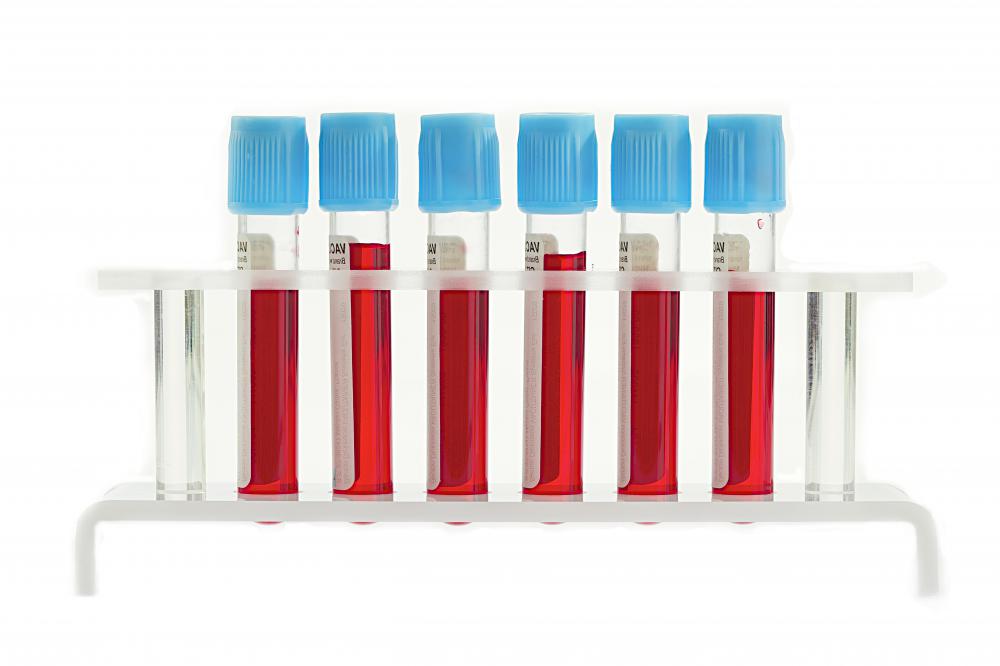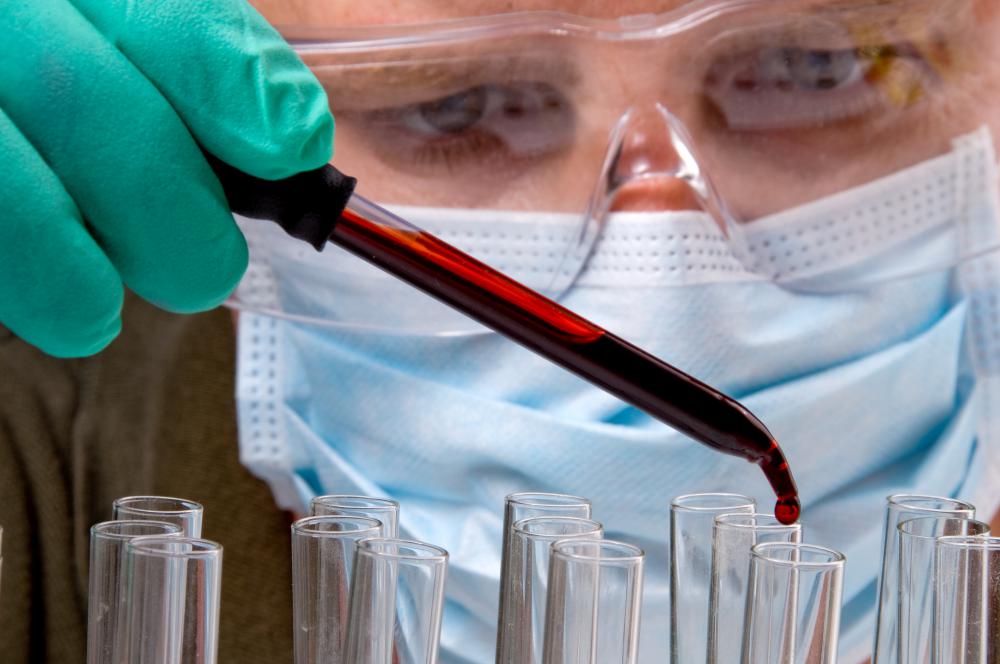At WiseGEEK, we're committed to delivering accurate, trustworthy information. Our expert-authored content is rigorously fact-checked and sourced from credible authorities. Discover how we uphold the highest standards in providing you with reliable knowledge.
What is a Clinical Pathologist?
A clinical pathologist is a doctor who specializes in the study of tissue, blood and bodily fluids. He frequently contributes to diagnostic procedures and is often part of medical teams that develop preventive procedures through clinical trials and testing. His work is usually performed in the laboratories of hospitals and research facilities.
Despite the frequent fictional portrayal of clinical pathologists making dramatic discoveries through performing autopsies, this is normally only a small part of his job. Pathologists that concentrate on suspicious death investigations are commonly known as medical examiners or forensic pathologists. Clinical pathologists typically focus on diagnosing the diseases and ailments of live patients.

Early detection of a disease is frequently the key to preventing it from becoming fatal. A clinical pathologist normally studies a patient’s medical history and current lifestyle to determine what factors may have contributed to the symptoms at hand. He commonly studies a variety of tissues and fluid samples to aid in his diagnosis.
In addition to his own research, a clinical pathologist regularly enlists the aid of other specialists in his diagnostic procedures. These commonly include technicians with skills in parasitology, hematology, serology, biochemistry and bacteriology. He may also require these associates to present respective tissue samples to him for his own microscopic examination.

A clinical pathologist is generally the person in charge of the facility’s laboratory procedures and practices. He often orders equipment and supplies, recommends equipment upgrades and introduces new diagnostic procedures related to the analysis of tissue and blood. The schedules of the medical technicians who work in the laboratory are commonly his responsibility as well.

Many clinics and hospitals designate a clinical pathologist as the person who manages the blood bank. He is ordinarily in charge of acquiring blood and processing it and its by-products. Testing the blood for quality and purity is also typically part of his job.
This job frequently requires interaction with other medical personnel. A clinical pathologist regularly confers with surgeons, oncologists and other specialists in diagnosing diseases and formulating treatment plan alternatives. He is also generally relied upon to confirm the presence of abnormal or unusual substances found in patient tissues or blood by other doctors.

A career as a clinical pathologist requires a doctor of osteopathy or doctor of medicine degree from an accredited medical school. To excel in this position normally requires a high level of tenacity and a strong inquisitive nature. The ability to multitask in a fast-paced environment is a highly desirable trait for an aspiring clinical pathologist
AS FEATURED ON:
AS FEATURED ON:
















Discuss this Article
Post your comments